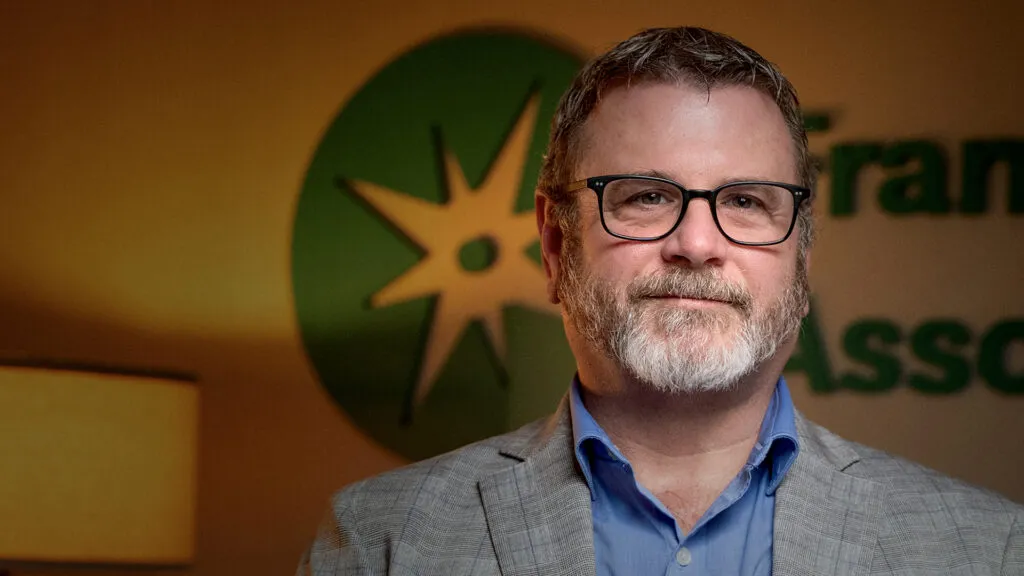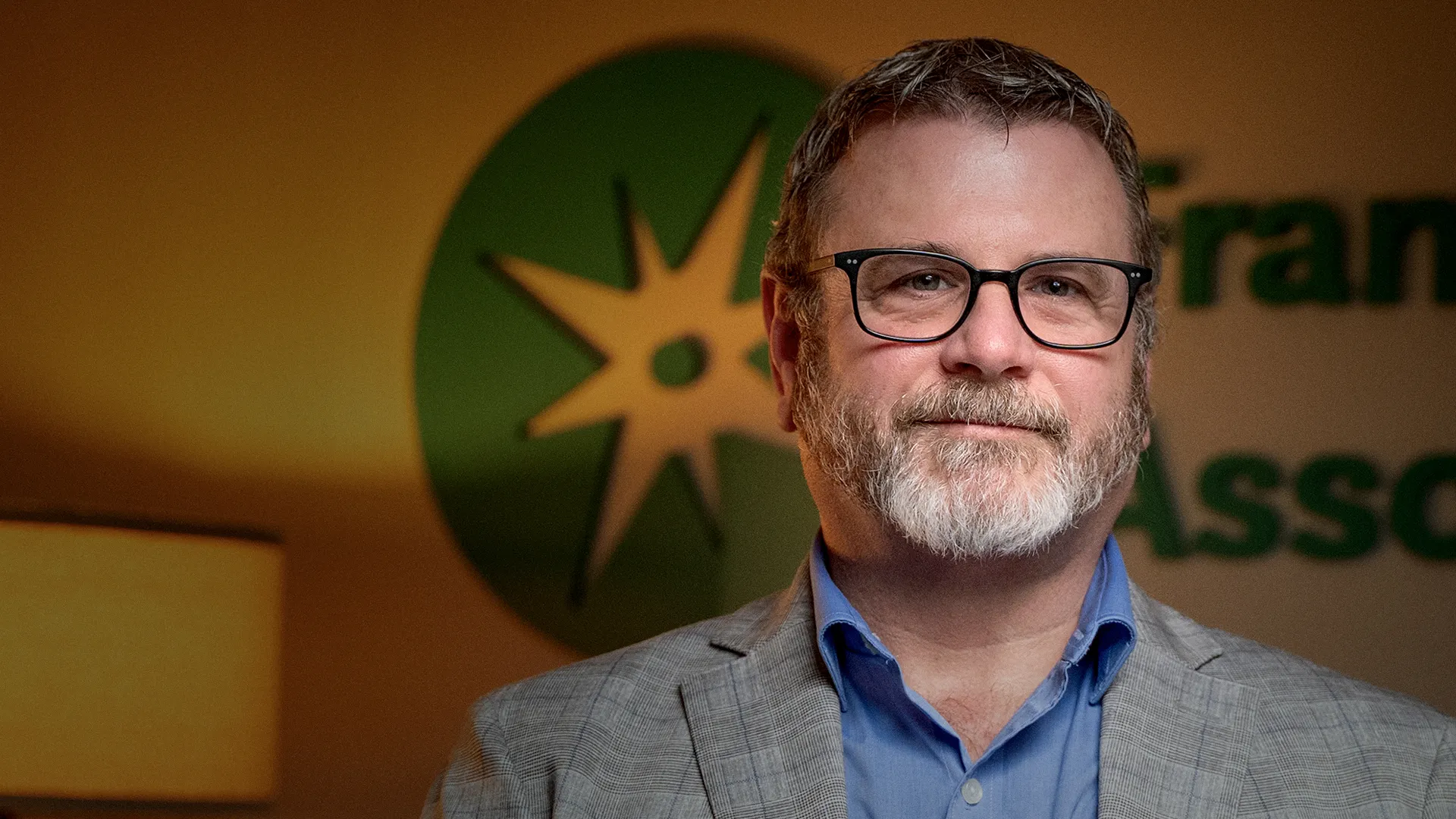Are you looking for a complete breakdown on how to achieve business ownership in 2024? This article is for you.
In this guide, we will cover:
- Study on the Quickest Path to Millionaire Status
- Traditional Startups vs. Franchising (Chart Featured)
- Benefits of Franchising
- How to Choose the Right Franchise for You
- Initial Costs and Ongoing Fees
- Support and Training from Franchisors
- Financing Your Investment
- Understanding Potential Return on Investment
- Benefits of Working with an FBA Franchise Broker
- Navigating the Current Economy (Chart Featured)
Each year, countless professionals contemplate the bold move of business ownership, dreaming of the freedom, flexibility, and potential financial rewards that come with the territory. Yet, many of us find ourselves still stuck in the same routine, wondering why we haven’t taken the leap.
The desire to become a business owner often stems from wanting more control over your career and life. For most, it’s also about breaking free from the constraints of a traditional job, pursuing a passion, and/or investing in something that truly matters.
In 2024, with the wealth of resources available, there has never been a better time to become a business owner.
If this appeals to you, well…you might need to rethink your 9 to 5 and how to leverage your skills, experience, and income from that corporate job that wants to keep you stuck, and venture out into business ownership. That’s what we’re here to help you do.
Related: Is There a Better Way? Rethinking Your 9 to 5 Job
In this guide to becoming a business owner in 2024, we will introduce you to all the ways you can achieve freedom through franchising.
Whether you’re just starting to explore the idea or ready to quit, this guide will give you the insights, strategies, and resources you need to succeed. So, if you’ve ever asked yourself, “Why aren’t I a business owner yet?“—it’s time to stop wondering and start doing.
Interested in learning about franchising outside this article? Check out our FREE franchise webinar, available to watch NOW.
Want to Become a Business Owner in 2024 but Don’t Know How?
Welcome to the conversation—you’re now among a courageous group of people inspired to change their careers and bring their entrepreneurial dreams to life. However, many of us still have questions unanswered.
To really take the leap toward business ownership, let’s save us both some time. Before we can help you answer if this is the right path for you, it’s crucial you answer some questions yourself:
- Are you currently on track to meet your wealth creation goals?
- Do you enjoy the flexibility in your schedule, allowing you to live the way you want while respecting your own needs?
- Is the majority of your workday spent developing your natural talents and gifts?
- Do you possess the ability to lead and guide others, and more importantly, do you have the desire to do so?
- Are you prepared to face resistance and challenges with resolve?
If you resonate with any of these questions, then you might be ready to explore options for business ownership. Let’s now take a look into why many so many are choosing this path and what you need to consider before big any decision.
The Appeal of Business Ownership
One of the main drivers for many business owners is the potential for significant financial rewards.
Studies have shown that entrepreneurs can achieve millionaire status faster than those in traditional careers (study below).
But beyond the financial potential, owning a business offers unparalleled control and flexibility. As a business owner, you have the ability to design your schedule and work environment, allowing you to create a business that aligns with your lifestyle and personal goals. Also, you’ll have the opportunity to leverage your unique skills and passions.
A Study on Wealth Building
Tom Corley’s 5-year study on the financial journeys of millionaires highlights the following paths to wealth:
- Saver-Investors: Typically reach millionaire status in an average of 32 years through disciplined saving and investing.
- Big Company Climbers: Achieve millionaire status over 22 years by climbing the corporate ladder.
- Virtuosos: Experts or highly skilled individuals who become millionaires in about 21 years.
- Entrepreneurs: Stand out by achieving millionaire status in just 12 years on average.
As seen, entrepreneurs often reach financial success faster due to the potential for rapid business growth and profitability. If wealth creation is a significant goal for you, entrepreneurship might be the path to consider.
Find this study interesting? Download the Financial White Paper on “Franchising as an Investment Strategy“
| Aspect | Type | Description |
|---|---|---|
| Control of Results | Risk | Success depends on your ability to make effective decisions and manage the business well. |
| Capital Commitment | Risk | Starting and running a business requires a significant investment, which should be justified by potential returns. |
| Franchise Agreement Risks | Risk | Consulting with a franchise attorney before committing to a franchise is crucial to understanding the agreement’s risks and opportunities. |
| Lease Risks | Risk | For physical storefronts, navigating lease agreements is critical. Ensure you understand all terms, including time commitments and zoning restrictions, and have agreements reviewed by professionals. |
| Contingency Planning | Risk | Having a plan for unexpected management changes is vital. Ensure there’s always a designated emergency contact for the business. |
| Risks of Status Quo | Risk | There are inherent risks in not pursuing your entrepreneurial ambitions, such as job insecurity, working for someone else’s dream, and/or not realizing your full potential. |
| Control Over Results | Reward | As the business owner, you dictate the direction and success of your venture. |
| Unlocking Potential | Reward | Ownership brings awareness to barriers that may have limited your potential, offering a chance to overcome them. |
| Skill Development | Reward | You’ll develop new skills in communication and management, enhancing your professional growth. |
| Community Involvement | Reward | Becoming a business owner connects you with a supportive community, broadening your network and influence. |
| Financial Advantages | Reward | Ownership provides unique opportunities for tax savings, wealth creation, and potentially significant returns on your investment. |
| Culture Creation | Reward | You have the autonomy to shape the culture of your business, fostering an environment that aligns with your values and goals. |
| Elevated Circle of Influence | Reward | Your network will expand, connecting you with individuals who can influence your business and personal growth positively. |
| Professional Development Investment | Reward | Business ownership is an investment in your professional development, offering continuous learning opportunities. |
| Tax Savings and Wealth Creation | Reward | The financial benefits extend beyond income, with tax advantages and wealth creation opportunities that are often more substantial than in traditional employment. |
The Difference Between Traditional Startups and Franchising
Within business ownership, the paths to wealth creation are diverse, each carrying its own spectrum of risks and rewards.
When most hear “business ownership” they think “startup.” But that’s not the only route to entrepreneurship, and here we aim to show you how franchising can often outperform traditional startups when it comes to overall satisfaction and success.
Traditional Startups
This route involves creating a concept and nurturing that concept from the initial spark through all trial and error phases. While this path is filled with potential, it also comes with significant challenges. The lack of a predefined path amplifies risks, as each misstep can heavily impact profitability and potential. However, this unpredictability can also be exciting, offering limitless growth possibilities for those who successfully navigate the early years.
Franchising
As an alternative, franchising merges entrepreneurship with a structured framework designed for success. It allows individuals to partner with an established brand, leveraging a proven business model and well-thought-out operations. This includes everything from employee management to customer experience. Franchising accelerates the launch process and provides a supportive community, meaning business owners can focus on their strengths rather than being spread thin across numerous roles.
10 additional reasons why franchising stands out as an option for business owners in 2024:
- Proven Business Model: Franchising allows you to partner with an established brand, leveraging a tested and refined business model. This significantly reduces the risks associated with starting a new business from scratch.
- Support and Training: Franchisors provide extensive support, including comprehensive training programs, marketing strategies, and operational guidance. This ensures you have a solid foundation and ongoing assistance to succeed.
- Community and Network: As a franchisee, you become part of a larger community of business owners. This network offers support, shares best practices, and fosters a collaborative environment.
- Alignment with Interests and Goals: Choosing a franchise that aligns with your personal interests and financial goals is crucial. Engaging in a business you are passionate about enhances your drive and commitment, making it easier to overcome challenges.
- Diverse Business Models (FBA is home to 700+ brands): Franchising offers various business models, from hands-on management to more semi-passive roles. Whether you want to convert your full-time job into building a business or add a new venture to your investment portfolio, there’s likely a franchise model that matches your needs.
- Market Potential and Sustainability: Select a franchise with strong market potential and sustainability. Look for brands that offer unique selling propositions or cater to an underserved market, ensuring long-term viability.
- Advanced Technological Platforms: Many franchises provide state-of-the-art technology systems to manage inventory, scheduling, and customer relationships. These tools enhance operational efficiency and customer satisfaction.
- Structured Operational Support: Franchisors offer exhaustive operational manuals and training programs, translating years of business experience into clear, actionable strategies. This minimizes the trial-and-error phase typically faced by independent startups.
- Continuous Support and Community: Beyond initial setup and training, franchisors provide ongoing support, regular system updates, and network-wide meetings. This culture of continuous improvement ensures franchisees remain competitive and well-informed.
- Strong Franchisor-Franchisee Relationships: The relationship between franchisor and franchisee is foundational. Effective franchisors maintain open lines of communication, fostering collaboration and mutual support. Peer support from fellow franchisees also provides invaluable insights and shared experiences.
To explore more about franchising and find the right opportunity for you, consider working with our expert Franchise Brokers, who can provide tailored advice at no cost.
Want a Deeper Dive into the Benefits of Franchising? Watch this FREE Webinar: https://www.franchiseba.com/franchise-webinar/
Business Ownership Through Franchising Q&A

So, now you know about franchising as a viable path to business ownership. It offers a blend of autonomy and support, making it an appealing option for many aspiring entrepreneurs. However, you might still have several unanswered questions before you can make an informed decision.
Here are some common questions franchise buyers often ask:
- How do I choose the right franchise for me?
- What initial costs and ongoing fees are involved?
- How much support will I get from the franchisor?
- What is the potential return on investment (ROI)?
- What kind of training will I receive?
- How do I finance my franchise purchase?
In the next section, we are going to cover these critical questions and more. We’ll talk about the tools and support systems that franchising offers, helping you understand how they can minimize the uncertainties and complexities that come with starting a business from scratch.
By the end of this guide, you’ll have a comprehensive understanding of what it takes to become a successful franchise owner and how to leverage the resources available to you.
Q: How Do I Choose the Right Franchise for Me?
A: Choosing the right franchise is crucial to your success as a business owner. The franchise that works for one person may not be the best fit for another, so it’s essential to evaluate your personal interests, skills, and financial goals.
Self-Assessment: Begin by identifying your strengths, weaknesses, and interests. Think about the types of industries that excite you and where you can envision yourself thriving.
Market Research: Study industry trends and market demand in your area. Look at the competition, target demographics, and overall market potential. This research will help you understand which franchises are likely to succeed in your location (an FBA franchise broker can help you do this).
Franchise Research: Investigate various franchises, focusing on their business models, support systems, and success rates. Look for brands with strong reputations and proven track records. Consider the longevity and stability of the franchise, as well as the support they offer to franchisees (an FBA franchise broker can help you do this).
Financial Considerations: Assess the initial investment, ongoing fees, and potential return on investment (ROI). Understand the full financial commitment required, including the franchise fee, equipment costs, real estate expenses, and working capital. Evaluate the ongoing costs, such as royalty fees and marketing contributions, and weigh them against the potential earnings (an FBA franchise broker can help you do this).
Consult Experts: Working with franchise brokers can be incredibly beneficial. Franchise brokers, especially those from the Franchise Brokers Association, are trained to help you find trustworthy brands. They can provide invaluable insights into the franchises you’re considering and help you understand which opportunities align best with your goals and financial situation.
The Role of FBA Franchise Brokers
The FBA focuses on GOOD franchises, ensuring that people looking for franchise opportunities are presented with trustworthy and reputable brands. The first step in this process is connecting with an FBA franchise broker. These brokers are highly trained and work at no cost to you. They take the time to get to know you, understand your business criteria, and consider your budget. This personalized approach ensures that the franchise opportunities presented to you are well-suited to your individual needs and goals.
By working with an FBA franchise broker, you gain access to their expertise and knowledge of the franchise industry. They can help you navigate the complex process of choosing the right franchise, providing insights and information that you might not have considered. This support can be invaluable in making an informed decision that sets you on the path to success as a franchise owner.
Q: What Initial Costs and Ongoing Fees Are Involved?
A: The journey to business ownership through franchising requires a clear understanding of the financial commitments involved. Whether you’re turning a passion into a profitable business or seeking the autonomy that comes with being your own boss, the financial groundwork is fundamental.
But here’s the silver lining: investing in a franchise means investing in a proven model, one that has already charted the course to success. In this section, we will look at the initial investments, ongoing fees, and the potential for growth—not just answering the question of “how much?” but understanding the “why” behind the numbers.
- Initial Franchise Fee: The initial franchise fee is a one-time payment to the franchisor that grants you access to their established brand, proprietary systems, and ongoing support. This fee typically ranges from $10,000 to $50,000, but can be higher for more established or in-demand brands. The fee covers the cost of training, support, and resources you’ll receive to start your franchise on the right foot.
- Equipment and Inventory Costs: After paying the initial franchise fee, the next step is to set up your business with the necessary equipment and inventory. These costs can vary significantly depending on the type of franchise. For instance, a Quick Service Restaurant (QSR) might require a large initial outlay for kitchen equipment, whereas a service-based franchise might need a van and tools. These costs are crucial for the day-to-day operations of your business.
- Real Estate and Build-Out Costs: Securing the perfect location for your franchise involves substantial costs. Whether leasing a space in a high-traffic shopping center or purchasing a standalone building, you need to consider both the cost of the real estate and the expenses involved in making the space fit your needs. Build-out costs include interior design, fixtures, signage, and equipment installation.
- Operating Capital: Operating capital is essential for securing your business’s long-term stability. It covers expenses such as inventory restocking, payroll, utility bills, and marketing activities. Franchisors specify a liquid capital requirement to ensure you have enough funds to sustain the business until it can stand on its own.
- Royalty and Advertising Fees: Once your franchise is up and running, you’ll encounter ongoing costs, primarily royalty and advertising fees. Royalty fees, typically 4% to 8% of monthly gross sales, compensate the franchisor for the continuous use of the brand and support services. Advertising fees, usually 1% to 4% of gross sales, fund national marketing campaigns and brand promotion efforts that benefit the entire network.
Comparing Costs: Traditional Startups vs. Franchising
Starting a business from scratch involves numerous hidden costs and uncertainties. The trial and error of hiring the right team, marketing to establish a customer base, sourcing and outfitting a location, and navigating the challenges of entrepreneurship can quickly escalate expenses for startups—often beyond initial projections. In other words, the success of a startup is never guaranteed, adding a layer of financial risk.
In contrast, investing in a franchise offers a more structured and potentially less risky pathway to business ownership. The initial franchise fee unlocks a proven business model, complete with brand recognition, operational systems, and a support network designed to accelerate your path to profitability. Equipment, inventory, and real estate expenses contribute to a business environment tailored for success, while operating capital ensures you have the financial runway to establish your franchise effectively. Ongoing costs like royalty and advertising fees are investments in continuous support and brand growth, contributing to a collective marketing effort that benefits all franchisees.
Understanding these financial aspects is crucial for anyone considering franchise ownership. It impacts your initial financial planning and influences long-term profitability and success. By knowing the costs involved and the value they bring, you can navigate the financial landscape of franchising confidently and make informed decisions about your investment.
Calculate Your Business Budget with our FREE Financial Calculator: https://www.franchiseba.com/franchise-financial-calculator/
Q: How Much Support Will I Get from the Franchisor?
A: Franchising presents an opportunity where the tools and support systems provided are designed to minimize the uncertainties and complexities of business ownership. When you invest in a franchise, you are essentially acquiring a comprehensive toolkit and a robust support network that has been refined and proven across multiple markets and scenarios.
Comprehensive Toolkit: When you become a franchisee, you gain access to a suite of proprietary technology platforms that streamline various aspects of your operations. These platforms cover everything from inventory management and scheduling to customer relationship management (CRM) systems. Designed to enhance efficiency, reduce errors, and improve the overall customer experience, these tools ensure that every interaction reflects the brand’s standards of excellence.
Operational Manuals and Training Programs: Beyond technology, franchisors offer detailed operational manuals and training programs. These resources translate years of business acumen and insights into processes that work, providing a clear roadmap for running the business. Covering aspects such as marketing strategies, employee training, financial management, and customer service, these guidelines alleviate the trial-and-error phase many independent business owners face. This allows franchisees to focus on growth and performance from day one.
Ongoing Support and Community: The support from a franchisor doesn’t end with tools and processes. Franchising is synonymous with community. Regular updates, training sessions, and network-wide meetings foster a culture of continuous improvement and innovation. This community acts as a sounding board, offering solutions to challenges and sharing success strategies, ensuring that you’re never alone. Your team in franchising is deeply invested in your success, creating a collaborative environment where everyone benefits from working together.
Q: What Is the Potential Return on Investment (ROI)?
A: Evaluating the potential ROI is crucial for any business venture, and franchising is no exception. The ROI of a franchise can be influenced by various factors, including the industry, location, market conditions, and your ability to manage the business effectively. Here’s how these factors play a role:
Industry and Market Demand: Franchises in high-demand industries tend to offer better ROI. For example, sectors like food service, health and wellness, and home improvement often see higher returns due to consistent consumer demand. However, this can certainly vary.
Location: The location of your franchise can significantly impact profitability. Prime locations with high foot traffic and visibility can attract more customers, boosting sales and ROI.
Management Skills: Effective management is critical. Your ability to efficiently run operations, manage staff, and market your business will directly affect your franchise’s profitability.
Franchise Model: A proven and scalable business model enhances ROI. Franchises with well-established systems and processes allow you to leverage their success, reducing the trial-and-error phase typical of new businesses.
Initial Investment: Lower initial costs can lead to a quicker return on investment. However, it’s essential to balance initial costs with the value provided by the franchise system, including support, training, and brand recognition.
One significant advantage of franchising is the transparency in financial performance. Franchisors are required by the Federal Trade Commission (FTC) to provide a Franchise Disclosure Document (FDD), which includes detailed information about the brand’s financial track record. This requirement ensures that prospective franchisees have access to crucial financial data, making it easier to evaluate the potential ROI of a franchise.
The FDD includes earnings claims, initial investment costs, ongoing fees, and other financial performance representations. This visibility allows investors to make more informed decisions by comparing the financial health and performance of different franchises.
However, understanding and interpreting these documents can be complex. This is where FBA franchise brokers play a vital role. These experts can help translate the information in the FDD, showing you the numbers in a clear and understandable way. They can explain how each brand weighs in comparison to another, considering your financial requirements and investment goals.
Q: What Kind of Training Will I Receive?
A: Franchisors typically provide comprehensive training programs to ensure you are well-prepared to run your franchise successfully. The type and extent of training can vary significantly from one franchise to another, but it generally includes initial onboarding, hands-on training at an existing location, and ongoing education.
Initial Training: This phase covers the basics of operating the franchise, including product knowledge, customer service, and business management. Initial training is designed to give you a solid foundation and understanding of the franchise’s core principles and operations. It often involves classroom-style learning and interactive sessions.
Hands-On Training: Practical experience is a crucial component of franchise training. Hands-on training at an established franchise location allows you to observe and participate in the day-to-day operations. This immersive experience helps you understand the nuances of running the business and prepares you for real-world scenarios.
Ongoing Education: Franchisors provide regular updates, webinars, and workshops to keep franchisees informed about new developments and best practices. Ongoing education ensures that you stay current with industry trends, operational improvements, and marketing strategies.
Variety in Training Programs: Every franchise differs in its approach to training. Some brands offer intensive, several-week-long training programs that thoroughly cover all aspects of the business. These programs may include extensive classroom instruction, hands-on practice, and assessments to ensure you are fully prepared.
At the end of the day, each franchise’s training program is designed to equip you with the knowledge and skills needed to run a successful business. By evaluating the finances of the business, retention rates, feedback from existing owners, and the comprehensiveness of the training offered, you can see how it all adds up. This holistic view positions you to make an informed decision about whether a particular franchise opportunity is right for you.
Q: How Do I Finance My Franchise Purchase?
A: Financing a franchise purchase is a critical step in the process. There are several methods available, and it’s important to explore all options to determine which best fits your financial situation. Here are some common financing options:
Personal Savings: Using your own funds to finance the franchise is a straightforward approach. This method allows you to avoid debt and interest payments, giving you full control over your business finances from the start. However, it requires having sufficient savings to cover the initial investment and operating capital.
Bank Loans: Securing a loan from a bank or financial institution is a traditional method of financing a franchise. Bank loans typically require a strong credit score, a solid business plan, and collateral. While interest rates and repayment terms vary, this option provides a significant lump sum to help cover initial costs.
401k Financing: Leveraging retirement funds to finance a franchise purchase is an innovative and increasingly popular option. Known as Rollovers as Business Startups (ROBS), this method allows you to use your 401(k) or IRA funds to invest in your new business without incurring early withdrawal penalties or taxes.
SBA Loans: The Small Business Administration (SBA) offers loans specifically designed for franchise purchases. SBA loans are popular because they often come with lower interest rates and longer repayment terms compared to traditional bank loans. Additionally, the SBA’s involvement can make the approval process more favorable for franchisees.
Franchisor Financing: Some franchisors offer financing options to help franchisees get started. These programs can be advantageous as they often come with favorable terms and a better understanding of the business model’s financial requirements. Franchisor financing can cover part of the initial investment or provide loans for specific needs such as equipment or inventory.
Investor Partnerships: Partnering with investors to finance the franchise is another viable option. Investors can provide the necessary capital in exchange for equity or a percentage of future profits. This method can reduce the financial burden on the franchisee and bring additional expertise and resources to the business.
The State of the US Economy and its Impact on Business Ownership in 2024
When you feel ready to take the leap into franchising, it’s essential to consider the broader economic landscape.
According to a top US economist, the outlook for business ownership in 2024 is positive. Understanding the current economic conditions can provide additional confidence as you begin entrepreneurship. In the next section, we will explore the economic factors that could impact your decision to buy a business this year, providing insights into why 2024 could be an opportune time for new franchise owners.
Get our full economic outlook here: https://www.franchiseba.com/us-economy-outlook-for-business-owners/
Many potential business owners are hesitant to take the plunge due to concerns about the current market conditions. The pervasive negativity in the news has fueled fears, making Americans wary of investing in themselves.
Insights from Top US Economist, Joe Brusuelas, at IFA’s Annual Conference
To understand the true state of the economy, we turned to insights from Joe Brusuelas, Chief Economist at RSM US LLP, at the 2024 International Franchise Association’s (IFA) annual conference. With over 20 years of experience analyzing U.S. monetary and fiscal policies, Brusuelas is a respected voice in economics, frequently briefing Congress and appearing in top financial media.
The Time to Invest is NOW
Brusuelas emphasized that now is a prime time for investment. American markets are on an upward trend, driven by the resilience and productivity of the workforce. This period represents a significant opportunity for business and franchise investments.
| Key Economic Indicators | Details | Implications for Business Owners |
|---|---|---|
| American Manufacturing Renaissance | Revival in American manufacturing, especially high-tech sectors. Significant investments like a $43 billion chip facility. Transforming rural and underdeveloped areas into tech hubs. Creates vibrant local economies and increases demand for goods/services. New infrastructure projects, such as fiber-optic cables, represent economic revival. | Increased disposable income in local economies. Higher demand for goods and services. Opportunities for franchises to establish new outlets or expand existing ones. Service-oriented franchises can thrive in growing workforce areas. |
| Inflation and Economic Stability | Inflation rates stabilized at around 2%, offering a predictable environment for planning and investment. Expected reduction in interest rates to about 2.5% by 2026, making capital more accessible and affordable. Lower borrowing costs facilitate business growth and higher returns on investment. | Stable inflation and lower interest rates boost consumer confidence. Increased consumer spending power. Lower borrowing costs for franchise investments and expansions. Enhanced business environment for consistent revenue streams. |
| Growth of AI and Enhanced Productivity | AI integration revolutionizing productivity across industries. Streamlines operations, enhances customer service, and improves marketing strategies. Reduces operational costs and creates new job opportunities. AI tools help predict inventory needs, personalize marketing, and reduce human error, leading to increased profitability. | Automation of routine tasks, reducing labor costs. Enhanced efficiency and productivity. Improved customer experience and satisfaction. Opportunities to upskill workforce. Higher overall profitability and growth potential. |
Understanding these economic dynamics provides a clear picture of the opportunities available. The current landscape, marked by a manufacturing renaissance, stabilized inflation, and the growth of AI, signals a ripe environment for business ownership. Now is the time to act. The economy is poised for sustained growth, enhancing the potential for business success. As Brusuelas concluded, venturing into business ownership now is a strategic move toward securing a prosperous future.
This productivity surge is lifting the overall economy, setting the stage for an American renewal and economic renaissance. The tools for success are within reach, and market conditions are aligning to support bold, innovative ventures.
Don’t Wait Until 2025. Start Planning Business Ownership Today
In this article, our primary goal has been to equip you with the insights and confidence needed to explore the path to business ownership. We understand that the journey to becoming a business owner is filled with significant decisions and potential uncertainties. However, we want you to feel secure in your choices, knowing that you have a powerful team of professionals ready to support you every step of the way.
At the Franchise Brokers Association, we pride ourselves on our dedicated team of professionals who are committed to bringing clarity and guidance to the franchising world. Our expert franchise brokers are trained to help you navigate the complex landscape of franchising, offering personalized advice and support. They work at no cost to you, ensuring that you receive unbiased, expert guidance tailored to your unique situation.
We believe in the power of conversation and are eager to discuss how franchising can work for you. Whether you’re just beginning to explore the idea or are ready to learn more today, our team is here to support you. Let’s talk about your goals, answer your questions, and explore the opportunities available to you in the world of franchising.
Feel secure in your journey toward business and franchise ownership. Connect with an FBA franchise broker today and take the first step towards your future.
Did you like this article? Here are 8 great additional resources to help you research franchising:
- Thinking of Becoming a Business Owner? Here’s a Breakdown of What to Consider
- The Franchise Definition: What, How, Who?
- What is the Failure Rate for a Franchise?
- What are the Advantages and Disadvantages of Owning a Franchise?
- Are You Researching Business Ownership? These 50 Franchise Facts Might Surprise You
- Business Ownership Alone Is Harder. Franchising Ensures You’re Working With The Right Team
- How Much Does It Cost to Buy A Franchise? 5 Associated Costs
- Is There a Better Way? Rethinking Your 9 to 5 Job



























